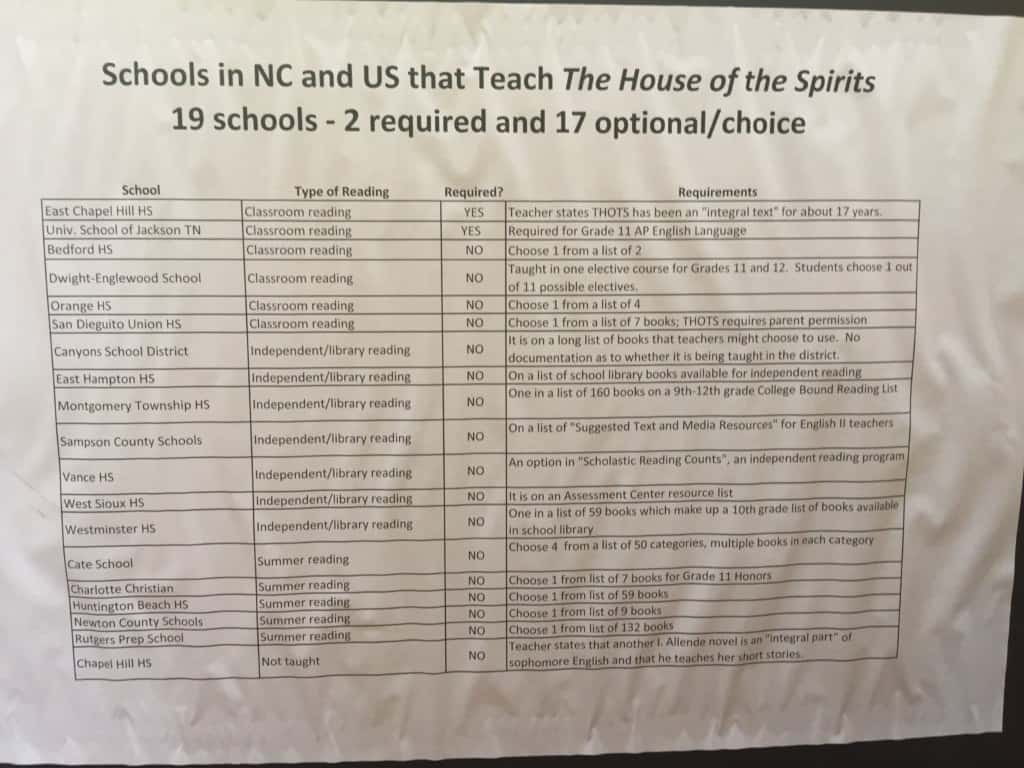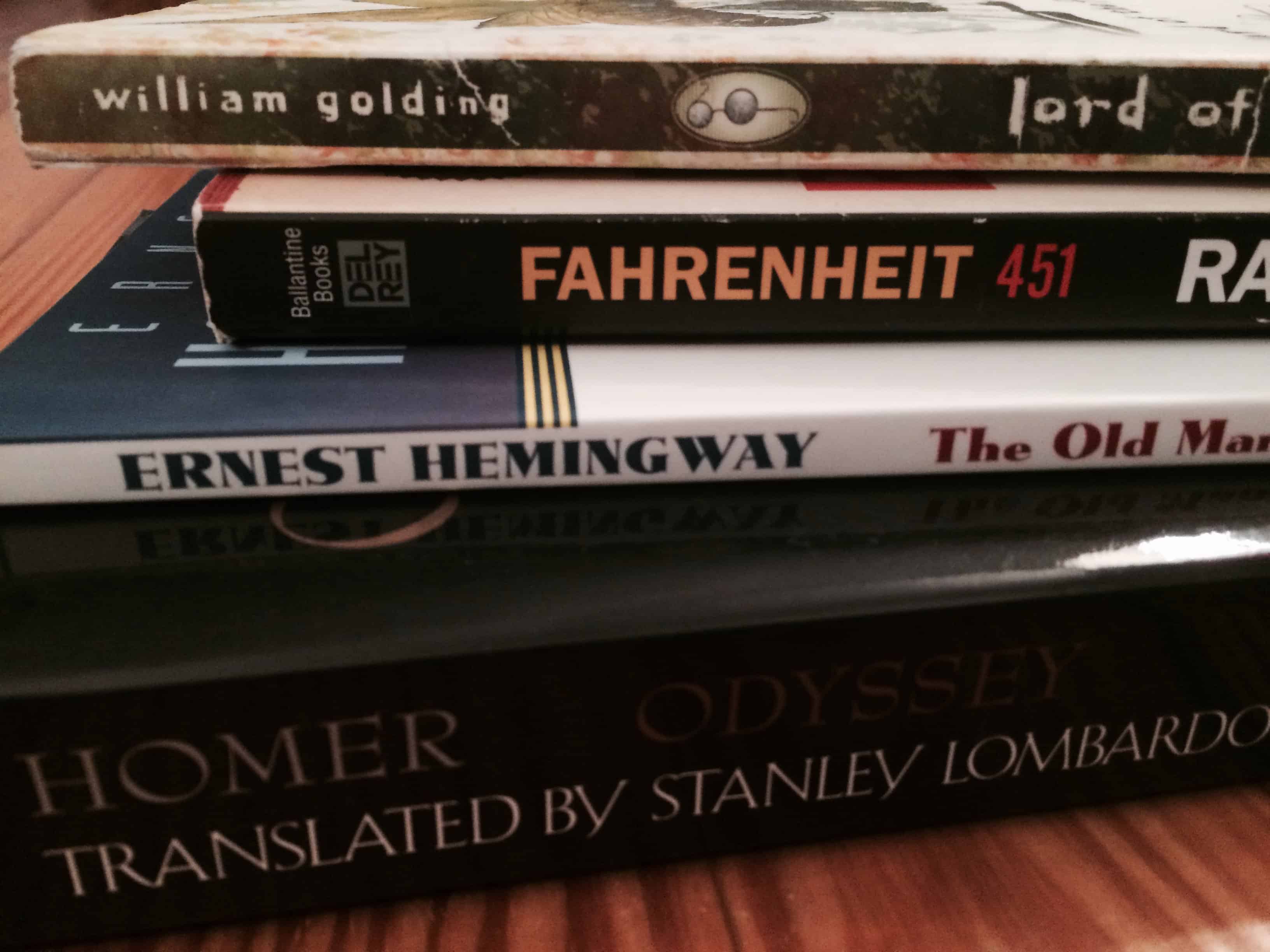The North Carolina General Assembly approved two new members to the State Board of Education before the end of session.
Amy Bannister White and Todd Chasteen, appointees of Governor Pat McCrory, breezed through a joint session vote, with no debate from any of the gathered lawmakers.
White is a former Wake County School Board member, and Chasteen is corporate counsel at Christian international relief organization Samaritan’s Purse.
Despite the smooth process, the confirmations are not without controversy. NC Policy Watch reported last year that Chasteen helped try to get writer Isabel Allende’s novel The House of the Spirits banned from the sophomore English Honors curriculum at Watauga High in Boone a few years ago. Ultimately, the novel remained in the curriculum.
Policy Watch also reported that an English teacher who used the book in her class said she “always provided alternate texts for students to read who wanted to opt-out of The House — but more than 90 percent of her students wanted to read it over the four semesters she’s taught the book.”
According to Policy Watch’s article from last year, Chasteen “declined to be interviewed for this story when reached via email.”
In a written statement provided recently to EducationNC, Chasteen explained the events surrounding the book from his point of view.
Chasteen was not involved in the controversy from the start. Parents of a student in the tenth grade class had challenged the book as not being “age-appropriate,” Chasteen explained in his written response. The parents had gone through “two rounds of review with no resolution,” and had filed an appeal with the Watauga County Board of Education. It was at this point that Chasteen read the book.
“I do not desire to rehash the incessant use of sexually explicit material in the book. Yet, sex acts with a dead person, two teens taking turns on an older prostitute, and the graphic molestation of a six year old girl, along with over 50 other sexual references or sexually explicit descriptions, all in graphic detail, did not seem age-appropriate for the flourishing of 10th graders,” he wrote. “The book selection divided a community. It should have been resolved within the school through collegiality and cooperation.”
Chasteen also said that students that opted-out of reading the book were penalized.
“If the student or parent somehow became familiar with the degree of vulgarity in the book, and asked for an alternative book, the student was relegated to the hallway or another room, ostracized and marginalized,” he wrote.


Ron Henries, chair of the Watauga Board of Education, said that during the controversy he heard rumors about students being forced to sit in the hallway if they didn’t want to read Allende’s book or participate in discussions about it, but that no student ever actually told the Board that it had happened to them. Generally, he said, the teacher and students said those who didn’t want to participate went to the library where they could be supervised and were given an alternative assignment. He did mention one student who requested to sit in the hallway rather than go to the library, but that was a voluntary action.
Henries said a lot of speculation swirled during the controversy but testimony to the Board made it seem as though the situation wasn’t as bad as some rumors made it out to be.
Chasteen said he never wanted the book banned, but rather simply wanted an equal choice for students who didn’t want to read Allende’s novel.
“The fact is the community of parents requested a compromise, such as providing an option, a choice among books, without a student being removed from the classroom,” he wrote. “The collegial option could have been reading circles with the choice of two books like other teachers had used, book options in summer reading, a book club, other recommended reading, having two different courses with different book options, library access, or other creative solutions. These compromises were rejected.”
Allende herself also weighed in on the controversy right before the first review of her book by the Watauga County Board of Education in 2013, before Chasteen became involved in the controversy. She wrote a letter to board members and led off by expressing surprise at the situation.
“I find myself in the unusual and awkward position of having to ‘defend’ my novel The House of the Spirits that risks being banned from a high school in Boone, North Carolina,” she writes in the letter. “Banning of books is a common practice in police states, like Cuba or North Korea, and by religious fundamentalist groups like the Taliban, but I did not expect it in our democracy.”
Read Chasteen’s full response on the controversy here.
Here is a bio sheet about Chasteen.



